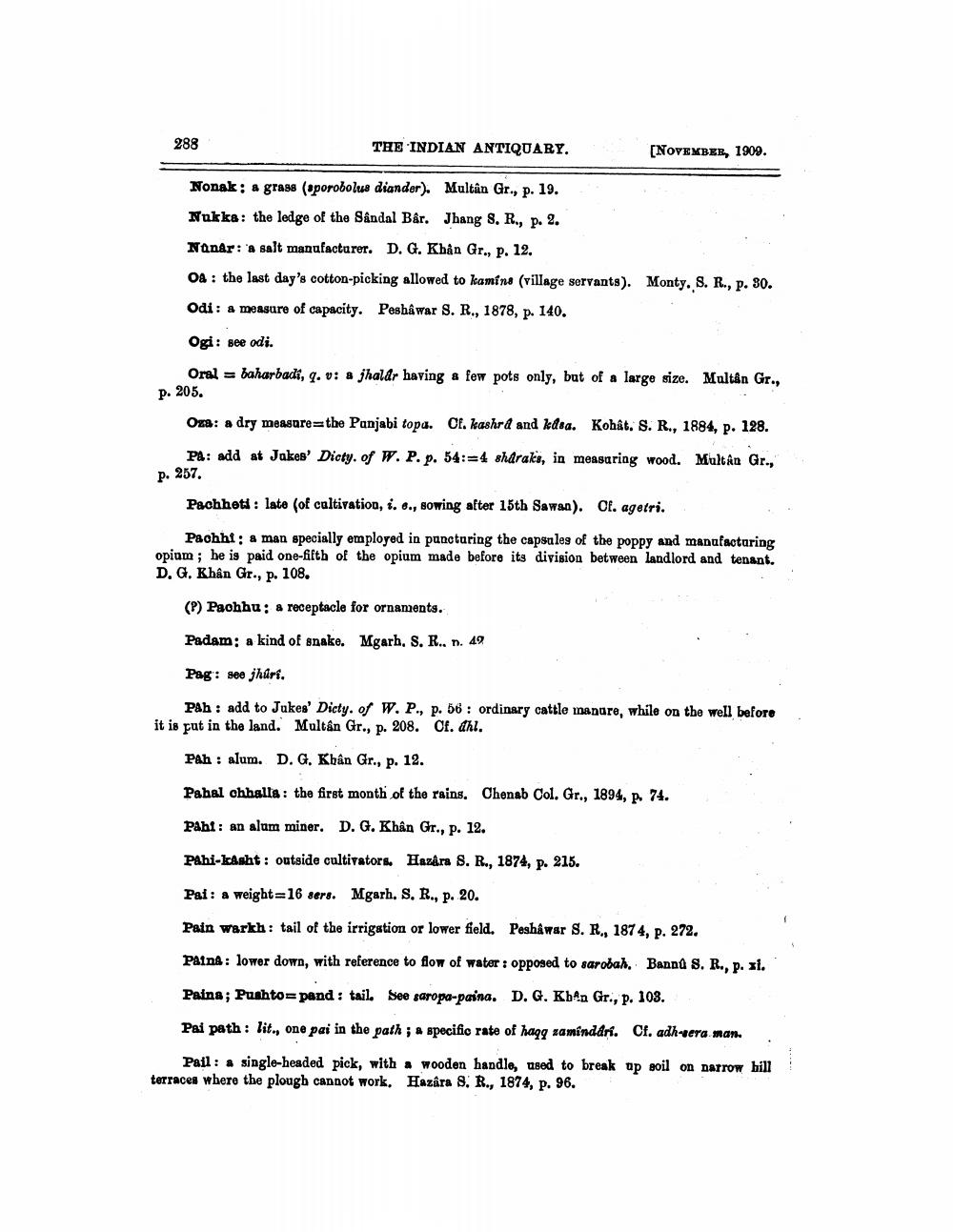________________
288
THE INDIAN ANTIQUABY.
[NOVEMBER, 1909.
Nonak: grass (sporobolus diander). Multân Gr., p. 19. Nukka: the ledge of the Sandal Bår. Jhang 8. R., p. 2. Nánar: 'a salt manufacturer. D. G. Kbån Gr. p. 12. 04: the last day's cotton-picking allowed to kamins (village servants). Monty. S. R., p. 30. Odi: a measure of capacity. Peshâwar S. R., 1878, p. 140.
Ogi: see odi.
Oral = baharbadi, q.v: a jhaldr having a few pots only, but of a large size. Multân Gr., p. 205.
Oza: a dry measure=the Panjabi topa. CE. kashrd and kasa. Kohat. S. R., 1884, p. 128.
PA: add at Jokes' Dicty. of W. P. p. 54:=4 sharaka, in measaring wood. Multan Gr., p. 257.
Pachheti: late (of cultivation, i. 6., sowing after 15th Sawan). Cl. agetri.
Pachht: a man specially employed in puncturing the capsules of the poppy and manufacturing opium ; be is paid one-fifth of the opium made before its division between landlord and tenant. D. G. Khân Gr., p. 108.
(P) Pachhu: a receptacle for ornaments. Padam: a kind of snake. Mgarh, S. R., n. 49
Pag: see jhuri.
PAL: add to Jukes' Dicty. of W. P., p. 56 : ordinary cattle manure, while on the well before it is put in the land. Multán Gr., p. 208. Of. dhi.
Pah : alum. D.G. Khân Gr., p. 12. Pahal ohhalla : the first month of the rains. Chenab Col. Gr., 1894, p. 74. Pant: an alum miner. D. G. Khân Gr., p. 12. Pahi-kasht: outside cultivators. Hazara S. R., 1874, p. 215.
Pai: a weight=16 sers. Mgarh. S. R., p. 20. Pain warkh: tail of the irrigation or lower field. Peshawar S. R, 1874, p. 272. Paina : lower down, with reference to flow of water : opposed to sarobah. Banna S. R., p. xi. Paina; Pushto = pand : tail. See saropa-paina. D. G. KbAn Gr., p. 103. Pai path: lit., one pai in the path ; a specific rate of haqq zaminddri. Cf. adhvera man.
Pail: a single-headed pick, with a wooden handle, used to break up soil on narrow hill terraces where the plough cannot work. Hazara 8. R., 1874, p. 96.




